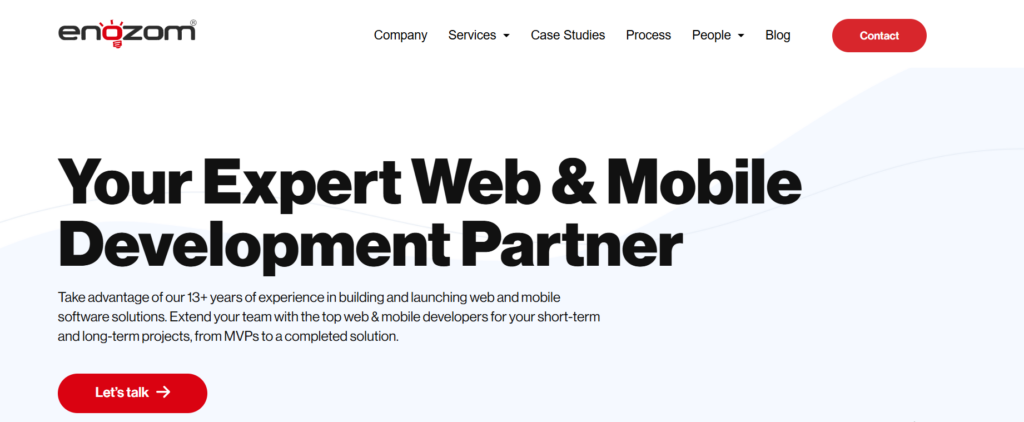Mobile app development services have emerged as a crucial pillar for businesses striving to stay competitive, relevant, and accessible. From enhancing customer engagement to streamlining operations, these services help organizations deliver seamless digital experiences directly into the hands of their users. Whether you’re a startup looking to launch your first app or an enterprise modernizing your tech stack, choosing the right development partner is essential for success.
What Are Mobile App Development Services?
Mobile app development services encompass the complete lifecycle of designing, developing, and deploying applications for mobile devices. These services cater to multiple platforms, including iOS, Android, and hybrid systems. The process typically involves conceptualizing the idea, designing user interfaces, writing code, integrating APIs, testing functionality, and maintaining the app post-launch. The ultimate goal is to deliver a fully functional, scalable, and secure mobile solution tailored to a business’s specific needs.
Core Elements of Mobile App Development Services
1. Custom App Design and User Experience (UX):
A key aspect of mobile application solutions is creating user interfaces that are not only visually appealing but also highly intuitive. Custom mobile app development begins with understanding the end-user’s behavior, preferences, and pain points. The goal is to design interfaces that provide a smooth, engaging, and satisfying experience across all touchpoints.
2. Native App Development:
Developing applications specifically for a platform—such as Android using Kotlin or iOS using Swift—ensures optimal performance, security, and seamless integration with device hardware. Native apps often deliver faster loading times and a better user experience compared to their cross-platform counterparts.
3. Cross-Platform Mobile App Development:
For businesses targeting both iOS and Android users without building two separate apps, cross-platform development offers a cost-effective solution. Using frameworks like Flutter and React Native, developers can write a single codebase that works across multiple platforms, reducing time-to-market and maintenance overhead.
4. Backend Development and API Integration:
Behind every great app is a robust backend that supports data storage, user management, and business logic. Mobile app development services often include custom API development and third-party integrations to ensure your app can communicate effectively with other systems such as CRMs, payment gateways, or cloud services.
5. Security and Compliance:
Security is a top priority in mobile app development, especially for apps that handle sensitive user data. Encryption, secure authentication, data privacy regulations (like GDPR and HIPAA), and secure coding practices are integral components of reliable mobile application development.
6. Testing and Quality Assurance (QA):
Comprehensive testing across devices and operating systems is essential to catch bugs and ensure a smooth user experience. QA processes include functional testing, performance testing, usability testing, and security audits.
7. Deployment and Ongoing Maintenance:
Launching an app is just the beginning. Mobile app development services often include support with app store submissions, version updates, bug fixes, and feature enhancements to keep your app competitive and fully functional over time.
Enozom Software is a leading software development company based in Alexandria, Egypt, specializing in delivering high-quality web and mobile applications tailored to diverse business needs. Established in 2012, Enozom has built a strong reputation for providing end-to-end software solutions to clients across the USA, UK, Germany, France, Saudi Arabia, and beyond.

Core Services
Enozom offers a comprehensive range of software development services tailored to meet diverse business needs, including:
Web Development: Building responsive, secure, and scalable websites using cutting-edge technologies that support long-term business growth.
Mobile App Development: Creating high-performance mobile applications for both iOS and Android platforms, designed to deliver seamless user experiences and meet modern usability standards.
Web Design: Designing clean, intuitive, and visually engaging user interfaces that enhance usability and strengthen brand identity.
Software Testing: Applying rigorous quality assurance and testing practices to ensure software reliability, performance, and user satisfaction across various platforms.
Software Outsourcing: Offering dedicated, skilled development teams to augment your in-house capabilities and deliver projects efficiently and cost-effectively.
Odoo Implementation: Providing end-to-end Odoo ERP integration and customization to optimize workflows, improve productivity, and align business operations with your goals.
Notable Achievements
Experience: Over 13 years in the software development industry.
Global Reach: Serving clients in more than 18 countries.
Project Delivery: Successfully completed over 146 projects.
Client Satisfaction: Maintains a high client rating of 4.9 out of 5.
Client Testimonials
Clients have praised Enozom for its professionalism, technical expertise, and commitment to delivering quality solutions. For instance, Patrick Günter, Executive at Empolis Information Management GmbH, stated, “Enozom Software’s team has successfully implemented all of the client’s development requests.”
Why Businesses Choose Mobile App Development Services
1. Customer Engagement and Retention:
Mobile apps offer businesses a direct and personalized channel to engage with customers. Through features like push notifications, in-app messaging, and loyalty rewards, companies can maintain ongoing interaction, boost customer satisfaction, and foster long-term loyalty.
2. Brand Presence and Recognition:
A professionally developed mobile app reinforces your brand identity by creating a consistent and accessible digital touchpoint. Regular app use increases brand recall and builds trust through seamless user experiences and visual consistency.
3. Operational Efficiency:
Custom mobile app development enables businesses to automate core operations such as task management, employee tracking, and inventory control. This reduces manual workload, minimizes errors, and enhances overall productivity across departments.
4. Revenue Growth:
Mobile apps unlock multiple monetization opportunities—from in-app purchases and subscriptions to ads and premium features. By leveraging strategic app development services, businesses can align revenue models with user behavior and maximize return on investment.
Types of Mobile App Development Services
1. Enterprise Mobile Solutions:
These apps are built for large-scale organizations, integrating with internal systems like ERPs or CRMs. They often feature advanced security, role-based access, and offline functionality to support distributed teams and mission-critical operations.
2. Startup App Development:
Startups benefit from fast, scalable development services focused on launching minimum viable products (MVPs). These services prioritize agility, cost-efficiency, and quick market entry—allowing startups to test, iterate, and grow rapidly.
3. eCommerce and Retail Apps:
Mobile apps in this sector provide customers with an end-to-end shopping experience, from browsing products and reading reviews to placing orders and tracking deliveries—all within a user-friendly interface.
4. Healthcare, Education, and Fintech Solutions:
Each of these industries demands tailored functionality. Mobile app development services here include secure health data management, e-learning capabilities, and encrypted financial transactions—while ensuring compliance with regulations like HIPAA, GDPR, or PCI-DSS.
Frequently Asked Questions (FAQ)
1. How long does it take to develop a mobile app?
The timeline for mobile app development depends on the complexity and scope of the project. A simple app may take 2–3 months, while more complex applications with multiple features and integrations can take 6 months or more.
2. What’s the difference between native and hybrid mobile apps?
Native apps are built specifically for a single platform (like iOS or Android), offering better performance and device integration. Hybrid or cross-platform apps are built using frameworks like Flutter or React Native, allowing one codebase to run on multiple platforms—saving time and development cost.
3. Do I need separate apps for Android and iOS?
Not necessarily. If your budget and timeline are tight, cross-platform development allows you to build one app that runs on both platforms. However, if performance and user experience are top priorities, native apps for each platform are often the better choice.
4. What kind of post-launch support is typically offered?
Most mobile app development services include post-launch support such as bug fixes, performance monitoring, updates for OS compatibility, and occasional feature enhancements. Long-term maintenance plans may also be available.
5. How do mobile apps handle user data securely?
Security is a key component of professional mobile app development. Measures include data encryption, secure authentication (like two-factor authentication), regular security updates, and compliance with data protection laws such as GDPR, HIPAA, or CCPA.
6. Can I update my app after it's launched?
Yes, updating an app post-launch is standard practice. You can roll out new features, enhance the UI/UX, or address bugs and performance issues through regular updates on app stores.
7. What is the cost of mobile app development services?
Costs can vary widely based on app complexity, features, design requirements, and development method (native vs. hybrid). Simple apps may start around $10,000–$20,000, while complex solutions can exceed $100,000.
8. Will I own the source code of the app?
Ownership of the source code typically depends on the terms of the contract with your development provider. Most reputable mobile app development services ensure you retain full rights to your application and its codebase.
Conclusion
In an increasingly digital world, mobile app development services have become essential for businesses seeking to connect with their audiences, streamline operations, and drive sustainable growth. Whether you’re building a consumer-facing app, automating internal workflows, or launching a startup MVP, choosing the right development approach—native, cross-platform, or hybrid—is crucial. With the right development partner, a mobile app can become a powerful tool to enhance user engagement, boost revenue, and solidify your brand presence in the mobile ecosystem. Investing in professional mobile app development is no longer optional—it’s a strategic necessity.
